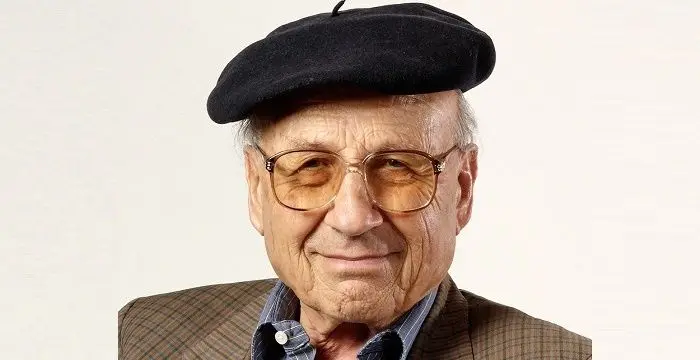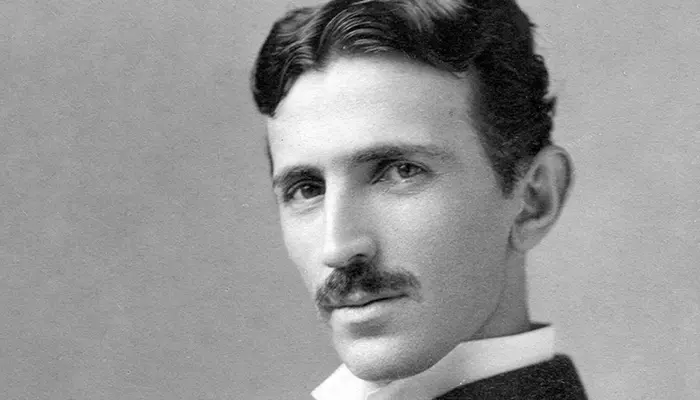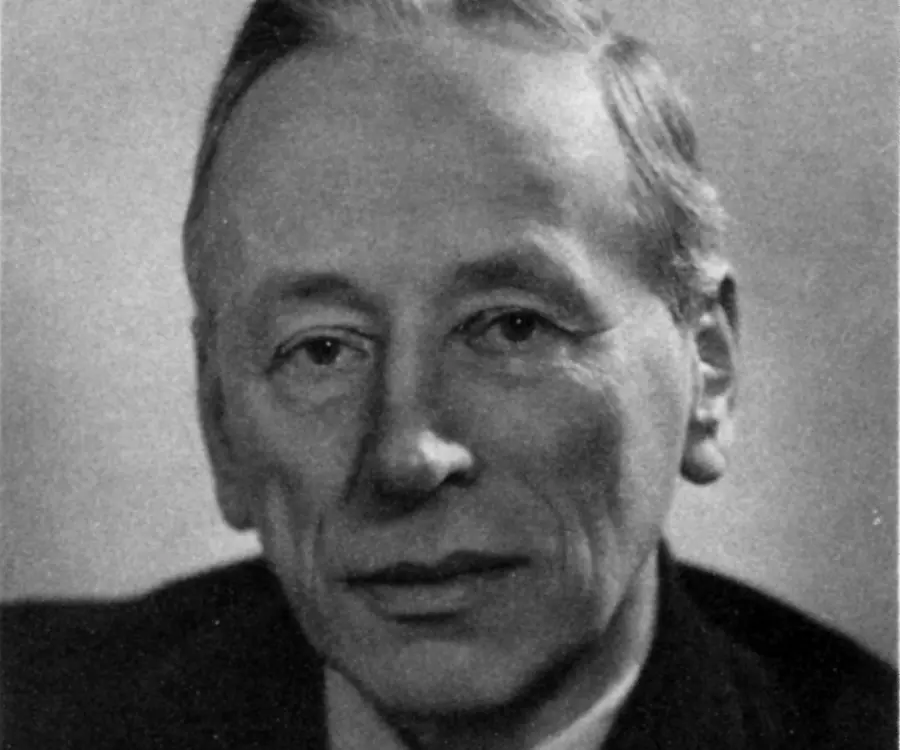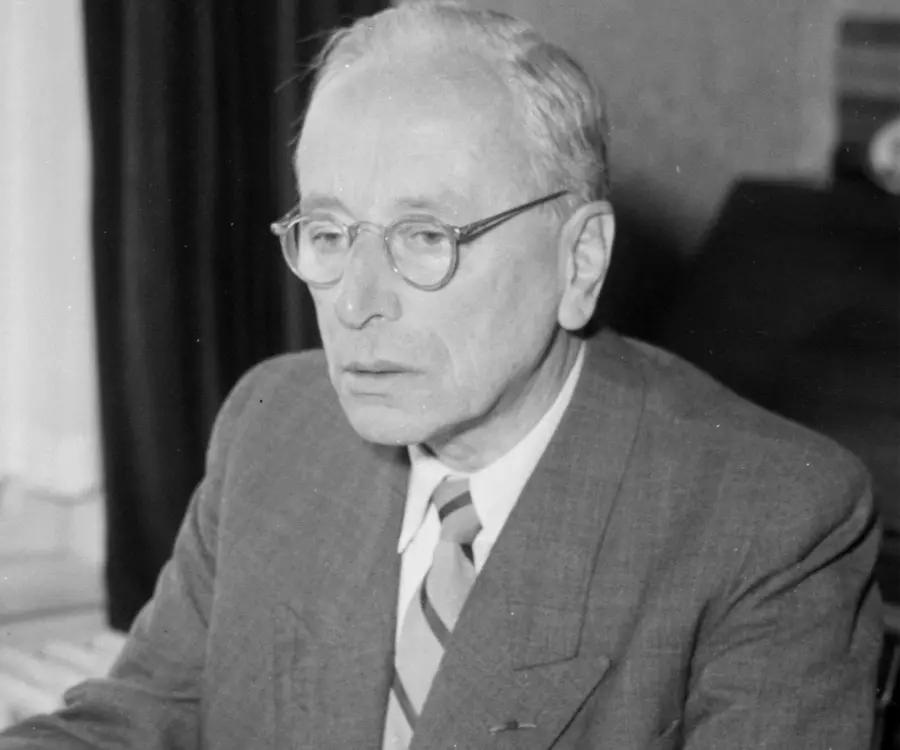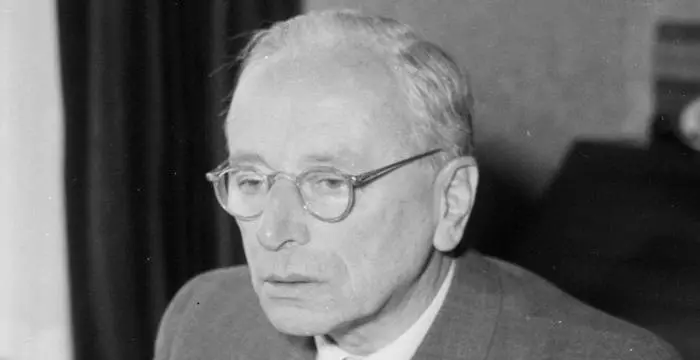
Frits Zernike - Physicists, Birthday and Personal Life
Frits Zernike's Personal Details
Fritz Zernike, also known as Fredrik Zernike, was a Dutch mathematician and physicist who received the Nobel Prize in Physics in 1953
| Information | Detail |
|---|---|
| Birthday | July 16, 1888 |
| Died on | March 10, 1966 |
| Nationality | Dutch |
| Famous | Scientists, Physicists |
| Spouses | Lena Korberg-Baanders, Theodora ‘Dora’ Wilhelmina van Bommel van Vloten |
| Siblings | Nelly |
| Childrens | Frits, N. N. Zernike |
| Universities |
|
| Birth Place | Amsterdam, Netherlands |
| Gender | Male |
| Father | Carl Frederick August Zernike |
| Mother | Antje Diepernik |
| Sun Sign | Cancer |
| Born in | Amsterdam, Netherlands |
| Famous as | Physicist |
| Died at Age | 77 |
// Famous Physicists
Henry Cavendish
Henry Cavendish was a theoretical chemist and physicist, renowned for discovery of hydrogen and calculation of the mass of earth. To know more about his childhood, profile, timeline and career read on
Walter Kohn
Nobel Laureate Walter Kohn was an Austrian-born American theoretical chemist and physicist. Check out this biography to know about his childhood, life, achievements, works & timeline.
Nikola Tesla
Nikola Tesla was a Serbian-American inventor, best known for his development of alternating current electrical systems. This biography of Nikola Tesla provides detailed information about his childhood, life, achievements, works & timeline.
Frits Zernike's photo
Who is Frits Zernike?
Fritz Zernike, also known as Fredrik Zernike, was a Dutch mathematician and physicist who received the Nobel Prize in Physics for inventing the phase-contrast microscope. He discovered the phenomenon of phase-contrast in 1930 during his investigations about some optical flaws that occurred in diffraction gratings of astronomical telescopes due to imperfections in the spacing of engraved lines. His design of the phase-contrast microscope was based on this phenomenon in which finely tuned rays of light could be separated as they passed through transparent materials. When using this microscope, the light was focused at an angle to enhance the structure of the cells in a tissue without staining or killing them as was required in earlier microscopes. Though this microscope was far superior to other microscopes of the time, not many gave the invention any importance. It came to the notice of Germans only during the Second World War and they seized the design and made duplicates of the microscope. He also devised the ‘Ornstein-Zernike Equation’ in collaboration with Leonard Salomon Ornstein which became the basis for the theory of integral equations related to the equilibrium of fluids. He also devoted a number of years in studying the correlation coefficients and order-disorder theory related to the molecules of various liquids.
// Famous Scientists
Juliane Koepcke
Juliane Koepcke is a German-Peruvian biologist, who was the lone survivor among the 92 passengers and crew of the ill-fated LANSA Flight 508 that crashed in the Peruvian rainforest on 24 December 1971. Know more about her life in this biography.
Henry Cavendish
Henry Cavendish was a theoretical chemist and physicist, renowned for discovery of hydrogen and calculation of the mass of earth. To know more about his childhood, profile, timeline and career read on
Konstantin Tsiolkovsky
Konstantin Tsiolkovsky was a Russian rocket scientist and a pioneer of astronautics. This biography provides detailed information about his childhood, family, personal life, career, achievements, etc.
Childhood & Early Life
Frits Zernike was born in Amsterdam, Netherlands, on July 16, 1888. His father, Carl Frederick August Zernike was the headmaster of an elementary school while his mother, Antje Diepernik was a mathematics teacher.
He was one of the six children in the family. He had four younger sisters named Anna, Lize, Elisabeth and Nelly and a younger brother named Johannes.
He had a passion for physics that he had inherited from his father and possessed items such a test tubes, crucibles and pots that were required for carrying out experiments during his schooldays. At school Frits excelled in science subjects but neglected subjects such as history and languages.
He had set up a mini observatory at his home from where he used to take photographs of comets. He also got involved in photographic experiments and used to make synthetic ether for his experiments. Sometimes he helped his parents in solving complicated mathematical problems as well.
After graduating from high school he joined the ‘University of Amsterdam’ in 1905 and studied chemistry as a major subject and physics and mathematics as minor subjects.
As a proof of his interest in mathematics, he won a gold medal from the ‘University of Groningen’ for an essay on probability in 1908.
He also won a gold medal from the ‘Dutch Society of Sciences’ at Haarlem for his work on critical opalescence in gases in 1912. Instead of taking the gold medal he requested to be given the prize money as he had already received a gold medal earlier.
He obtained a B.Sc. degree in chemistry from the ‘Groningen University’ in 1912.
In 1913 he joined the ‘Groningen University’ as an assistant to Jacobus Cornelius Kapteyn who was the head of the astronomical laboratory of the university.
He worked with Leonard Salomon Ornstein in devising the ‘Ornstein-Zernike Equation’ in 1914.
He did his PhD from the ‘University of Amsterdam’ in 1915.
Career
Frits Zernike joined the ‘Groningen University’ as a lecturer of ‘Mathematical Physics’ and taught there from 1915 to 1920.
He became a professor of ‘Theoretical Physics’ at the ‘Groningen University’ in 1920.
From 1930 he started studying optics more extensively. He developed the phase-contrast theory during this time and wrote on imaging errors produced by concave gratings.
He described his findings to the ‘Physical and Medical Congress’ held at Wageningen in 1933.
Zerniker’s next contribution to the field of optics was the ‘orthogonal circle polynomials’ which solved a long-standing problem related to the ‘optimum balancing’ of different kinds of aberrations that are produced in an optical instrument. These ‘circle polynomials’ started being used in image analysis and optical metrology and design from the 1960s.
He was able to develop the phase-contrast microscope in 1938 but its importance was not apparent to anybody including companies like Zeiss. Only when the Germans were looking for various inventions during the Second World War that could help the war effort, they came across this microscope and made duplicates of it for their own experiments.
In 1938 he proposed a simpler version of a theorem suggested by Van Cittert in 1934 related to the coherence theory of coherent light sources which is known as the ‘Cittert-Zernike Theorem’.
In 1941 the departments of Mathematical and Technical Physics and Theoretical Mechanics was added to his chair.
He retired as Professor of ‘Theoretical Physics’ at the ‘Groningen University’ in 1958.
Awards & Achievements
Frits Zernike was made a member of the ‘Royal Netherlands Academy of Arts and Sciences’ in 1946.
He received the ‘Rumford Medal’ from the ‘Royal Society of London’ in 1952.
He received the Nobel Prize in Physics in 1953.
He received an honorary doctorate in Medicine from the ‘University of Amsterdam’.
He was made a ‘Foreign Member’ of the ‘Optical Society of America’ and a member of the ‘Royal Microscopical Society’.
Personal Life & Legacy
He married Theodora ‘Dora’ Wilhelmina van Bommel van Vloten, a divorced teacher, on January 28, 1930 and had a son named Frits from this marriage. He also adopted Dora’s daughter N. N. Zernike.
He married Lena Korberg-Baanders, the widow of Samuel ‘Sam’ Kopenberg, on February 12, 1954, after the death of Dora on February 16, 1945.
He fell ill in 1958 and did not recover from it until his death in 1966.
Frits Zernike died of illness in Amersfoort, Netherlands on March 10, 1966.
The northern complex of the ‘Groningen University’ was named the ‘Zernike Park’ after him.
A Linux distribution called the ‘Oz Enterprise’ was named after Fredrik Zernike and Leonard Salomon Ornstein.
A crater on the Moon with a diameter of 48 kilometers was named ‘Zernike’ after him.
Trivia
While Germany benefited from the phase-contrast microscope invented by Frits Zernike, he and all other people of the Netherlands suffered from the German occupation of their country.
// Famous Dutch peoples
Nikkie De Jager
Check out all that you wanted to know about Nikkie De Jager, the famous Dutch Makeup artist; her birthday, her family and personal life, her boyfriends, fun trivia facts and more.
Romee Strijd
Romee Strijd is a Dutch model, also known as a 'Victoria's Secret Angel.' Check out this biography to know about her family, personal life, including her age, birthday, etc.
Nisrina Sbia
Nisrina Sbia is a social media influencer and model who rose to fame and has made it big on Instagram. Check out this biography to know about her birthday, childhood, family life, achievements and fun facts about her.
Frits Zernike's awards
| Year | Name | Award |
|---|---|---|
Other | ||
| 0 | Rumford Medal (1952) | |
| 0 | Nobel Prize for Physics (1953) | |
| 0 | Fellow of the Royal Society | |
Frits Zernike biography timelines
- // 16th Jul 1888Frits Zernike was born in Amsterdam, Netherlands, on July 16, 1888. His father, Carl Frederick August Zernike was the headmaster of an elementary school while his mother, Antje Diepernik was a mathematics teacher.
- // 1905After graduating from high school he joined the ‘University of Amsterdam’ in 1905 and studied chemistry as a major subject and physics and mathematics as minor subjects.
- // 1908As a proof of his interest in mathematics, he won a gold medal from the ‘University of Groningen’ for an essay on probability in 1908.
- // 1912He also won a gold medal from the ‘Dutch Society of Sciences’ at Haarlem for his work on critical opalescence in gases in 1912. Instead of taking the gold medal he requested to be given the prize money as he had already received a gold medal earlier.
- // 1912He obtained a B.Sc. degree in chemistry from the ‘Groningen University’ in 1912.
- // 1913In 1913 he joined the ‘Groningen University’ as an assistant to Jacobus Cornelius Kapteyn who was the head of the astronomical laboratory of the university.
- // 1914He worked with Leonard Salomon Ornstein in devising the ‘Ornstein-Zernike Equation’ in 1914.
- // 1915He did his PhD from the ‘University of Amsterdam’ in 1915.
- // 1915 To 1920Frits Zernike joined the ‘Groningen University’ as a lecturer of ‘Mathematical Physics’ and taught there from 1915 to 1920.
- // 1920He became a professor of ‘Theoretical Physics’ at the ‘Groningen University’ in 1920.
- // 1930From 1930 he started studying optics more extensively. He developed the phase-contrast theory during this time and wrote on imaging errors produced by concave gratings.
- // 28th Jan 1930He married Theodora ‘Dora’ Wilhelmina van Bommel van Vloten, a divorced teacher, on January 28, 1930 and had a son named Frits from this marriage. He also adopted Dora’s daughter N. N. Zernike.
- // 1933He described his findings to the ‘Physical and Medical Congress’ held at Wageningen in 1933.
- // 1934 To 1938In 1938 he proposed a simpler version of a theorem suggested by Van Cittert in 1934 related to the coherence theory of coherent light sources which is known as the ‘Cittert-Zernike Theorem’.
- // 1938He was able to develop the phase-contrast microscope in 1938 but its importance was not apparent to anybody including companies like Zeiss. Only when the Germans were looking for various inventions during the Second World War that could help the war effort, they came across this microscope and made duplicates of it for their own experiments.
- // 1941In 1941 the departments of Mathematical and Technical Physics and Theoretical Mechanics was added to his chair.
- // 16th Feb 1945 To 12th Feb 1954He married Lena Korberg-Baanders, the widow of Samuel ‘Sam’ Kopenberg, on February 12, 1954, after the death of Dora on February 16, 1945.
- // 1946Frits Zernike was made a member of the ‘Royal Netherlands Academy of Arts and Sciences’ in 1946.
- // 1952He received the ‘Rumford Medal’ from the ‘Royal Society of London’ in 1952.
- // 1953He received the Nobel Prize in Physics in 1953.
- // 1958He retired as Professor of ‘Theoretical Physics’ at the ‘Groningen University’ in 1958.
- // 1958 To 1966He fell ill in 1958 and did not recover from it until his death in 1966.
- // 10th Mar 1966Frits Zernike died of illness in Amersfoort, Netherlands on March 10, 1966.
// Famous Cancer Celebrities peoples
Jacob Elordi
Jacob Elordi is an Australian actor. Let’s take a look at his childhood, family, personal life, career, etc.
Riele Downs
Riele Downs is a Canadian-American actress & Musical.ly star. Let’s take a look at her family and personal life including age, birthday, net worth, boyfriends and fun facts.
Yammy Xox
Check out all that you wanted to know about Yammy Xox, the famous British YouTube Personality; her birthday, her family and personal life, her boyfriends, fun trivia facts and more.
Kaylee Quinn
Kaylee Quinn is an American dancer, model, and actress. Let’s have a look at her family and personal life including age, date of birth, net worth, relationships, and fun facts.
Sophia Montero
Sophia Montero is an American singer and YouTuber. Let’s have a look at her family and personal life including age, date of birth, net worth, relationships, and fun facts.
Domo Wilson
Check out all that you wanted to know about Domo Wilson, the famous American Vlogger & YouTube Personality; her birthday, her family and personal life, fun trivia facts and more.
Frits Zernike's FAQ
What is Frits Zernike birthday?
Frits Zernike was born at 1888-07-16
When was Frits Zernike died?
Frits Zernike was died at 1966-03-10
Where was Frits Zernike died?
Frits Zernike was died in Amersfoort, Netherlands
Which age was Frits Zernike died?
Frits Zernike was died at age 77
Where is Frits Zernike's birth place?
Frits Zernike was born in Amsterdam, Netherlands
What is Frits Zernike nationalities?
Frits Zernike's nationalities is Dutch
Who is Frits Zernike spouses?
Frits Zernike's spouses is Lena Korberg-Baanders, Theodora ‘Dora’ Wilhelmina van Bommel van Vloten
Who is Frits Zernike siblings?
Frits Zernike's siblings is Nelly
Who is Frits Zernike childrens?
Frits Zernike's childrens is Frits, N. N. Zernike
What was Frits Zernike universities?
Frits Zernike studied at University of Amsterdam
Who is Frits Zernike's father?
Frits Zernike's father is Carl Frederick August Zernike
Who is Frits Zernike's mother?
Frits Zernike's mother is Antje Diepernik
What is Frits Zernike's sun sign?
Frits Zernike is Cancer
How famous is Frits Zernike?
Frits Zernike is famouse as Physicist

